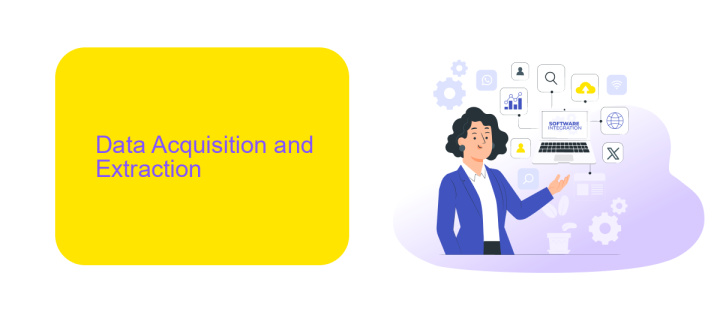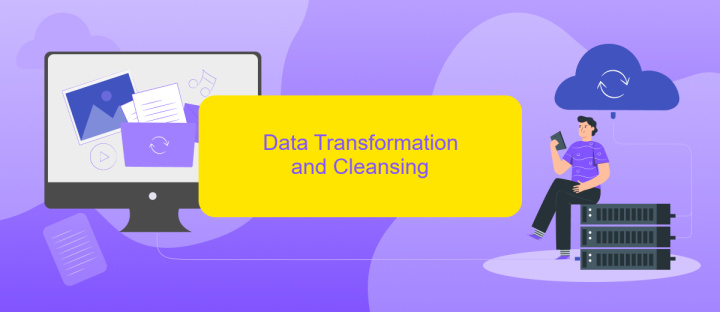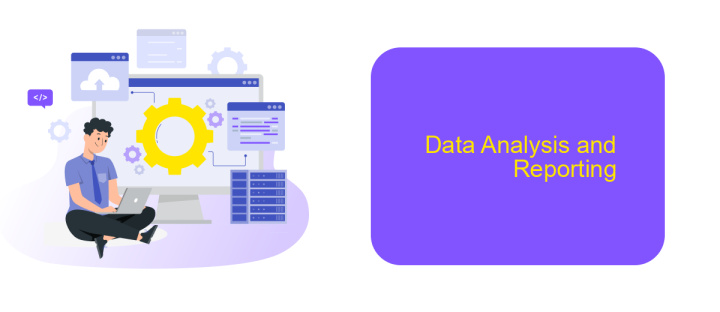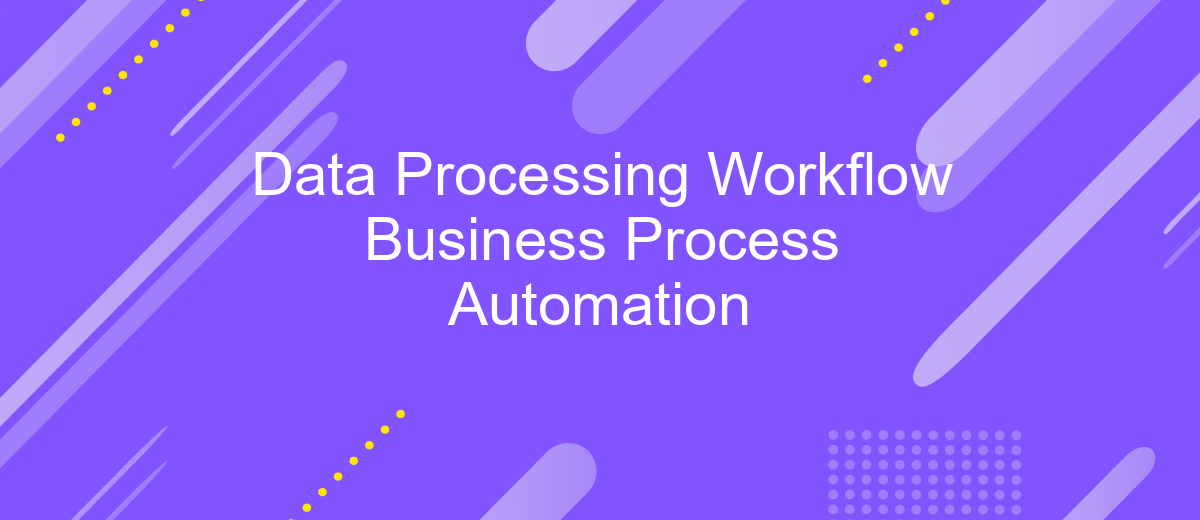Data Processing Workflow Business Process Automation
In today's fast-paced business environment, efficient data processing is crucial for maintaining a competitive edge. Business Process Automation (BPA) streamlines data workflows, reducing manual effort and minimizing errors. By integrating advanced technologies, companies can enhance productivity, ensure data accuracy, and make informed decisions swiftly. This article explores the key components and benefits of automating data processing workflows in modern enterprises.
Introduction
In today's fast-paced business environment, the efficiency of data processing workflows is crucial for maintaining a competitive edge. Automation of these workflows not only reduces manual labor but also minimizes errors, enhances productivity, and ensures data accuracy. Businesses are increasingly turning to advanced tools and technologies to streamline their data processing tasks.
- Improved efficiency and speed
- Reduction in human errors
- Enhanced data accuracy
- Increased productivity
- Better resource management
One such tool that aids in the automation of data processing workflows is ApiX-Drive. This service allows businesses to integrate various applications and automate data transfers effortlessly. By leveraging ApiX-Drive, organizations can ensure seamless communication between different software systems, thereby optimizing their data processing workflows and focusing more on strategic tasks rather than operational ones.
Data Acquisition and Extraction

Data acquisition and extraction are critical steps in any data processing workflow. The process begins with identifying and collecting raw data from various sources, such as databases, APIs, and web scraping. This data can be structured or unstructured and often requires preprocessing to ensure its quality and relevance. Tools like ETL (Extract, Transform, Load) systems are commonly used to automate this process, ensuring that data is consistently and accurately gathered.
Integrating different data sources can be challenging, but services like ApiX-Drive simplify this task by providing seamless integration capabilities. ApiX-Drive allows users to connect various applications and automate data flows without extensive coding knowledge. This not only accelerates the data acquisition process but also ensures that the data is synchronized and up-to-date across all platforms. By leveraging such services, businesses can focus more on data analysis and decision-making rather than the complexities of data integration.
Data Transformation and Cleansing

Data transformation and cleansing are crucial steps in any data processing workflow, ensuring that the data is accurate, consistent, and usable for analysis. These processes involve converting raw data into a structured format and removing any inaccuracies or inconsistencies.
- Data Transformation: This step involves converting data from one format to another. It can include operations like normalization, aggregation, and generalization. Tools like ETL (Extract, Transform, Load) systems are typically used to automate this process.
- Data Cleansing: This involves identifying and correcting errors in the data. Common tasks include removing duplicate records, filling in missing values, and correcting errors in data entries. Automated tools and scripts are often employed to streamline this process.
Integrating services like ApiX-Drive can further enhance the efficiency of data transformation and cleansing. ApiX-Drive allows for seamless integration between various data sources and applications, automating the flow of data and ensuring that the transformed and cleansed data is readily available for analysis. This not only saves time but also significantly reduces the risk of human error.
Data Analysis and Reporting

Data analysis and reporting are critical components of any business process automation workflow. By leveraging advanced analytics, organizations can gain actionable insights that drive informed decision-making. This involves collecting, cleaning, and transforming raw data into a structured format suitable for analysis.
Once the data is prepared, various analytical techniques such as statistical analysis, machine learning, and data visualization are applied to uncover patterns and trends. This process helps in identifying key performance indicators (KPIs) and other metrics essential for monitoring business performance.
- Data collection and preprocessing
- Application of analytical techniques
- Visualization of data insights
- Generation of comprehensive reports
For seamless integration of data from multiple sources, services like ApiX-Drive can be utilized. ApiX-Drive automates the data transfer process, ensuring that all relevant information is available for analysis in real-time. This enhances the accuracy and efficiency of the data analysis workflow, enabling businesses to make timely and well-informed decisions.
- Automate the work of an online store or landing
- Empower through integration
- Don't spend money on programmers and integrators
- Save time by automating routine tasks
Workflow Management and Automation
Effective workflow management and automation are crucial for optimizing data processing workflows. By automating repetitive tasks, businesses can significantly reduce the time and effort required for data processing, allowing employees to focus on more strategic activities. Automation also minimizes the risk of human error, ensuring data integrity and consistency. Advanced tools and platforms enable seamless integration of various data sources, enhancing the overall efficiency of the workflow.
One such platform that facilitates workflow automation is ApiX-Drive. This service provides robust features for setting up integrations between different applications and data sources without the need for coding skills. By leveraging ApiX-Drive, businesses can automate data transfers, synchronize information across systems, and streamline their data processing tasks. This not only improves operational efficiency but also provides real-time insights, enabling better decision-making and agility in business processes.
FAQ
What is Business Process Automation (BPA) in data processing workflows?
How can BPA improve data accuracy and consistency?
What are the common challenges in implementing BPA for data processing?
How can I get started with automating my data processing workflows?
Is it necessary to have programming skills to implement BPA?
Routine tasks take a lot of time from employees? Do they burn out, do not have enough working day for the main duties and important things? Do you understand that the only way out of this situation in modern realities is automation? Try Apix-Drive for free and make sure that the online connector in 5 minutes of setting up integration will remove a significant part of the routine from your life and free up time for you and your employees.


